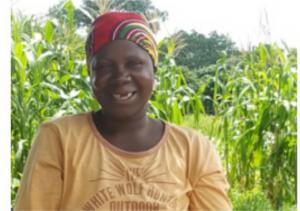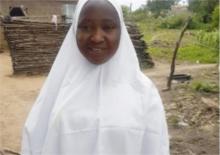Bauchi rural women accept child spacing with WHO support
Bauchi, October 19, 2020- “Even though I knew my body needed rest from childbirth, I didn’t have any information on how to space my children and stop childbirth when I really wanted to. After my seventeenth delivery the new Community Health Workers posted to our primary healthcare center helped me to make an informed decision about my body. Now that I have the right type of contraception, my body is able to rest. I am very happy about this” Stated Lami Danladi a 37-year-old woman living with her family in Tasha-Laya Village of Toro Local Government Area in Bauchi State.
Like most women and girls in the village and many parts of Nigeria, Lami started childbirth at age 15, and could not space child birth as she had no fore knowledge about modern child spacing methods. She wished to stop childbirth earlier to allow her body to rest, but she could not due to the lack of access to contraceptive services. This was because the cadre of health workers who provide these services were not available in the primary healthcare centre in her community.
Lami’s life would have probably continued in that same manner if she had not met the Community Health Extension Workers (CHEW) that were posted to the Primary Health Care (PHC) Nabardo, Toro LGA who had benefitted from some of the trainings facilitated by the Global Affairs Canada funded Enhancing the ability of frontline health workers to improve health in Nigeria implemented by WHO. Lami was reached during routine house-to-house outreaches, in which the CHEWs, besides discussing safe maternal health practices with women, also encourage and counsel women and their families to access child-birth spacing services from health facilities. After a series of counseling and follow up, Lami chose a long-term contraceptive method, which was administered to her.
“Even though Long Acting Contraceptive Methods (LARC) have been introduced for a long time, the uptake has been really slow among women who live in our rural area. This is because only doctors and nurses were allowed to administer these contraceptive methods in the pasts, but we have shortages of these types of health workers in the rural areas” said Binta Yakubu, the CHEW who counseled and provided LARC to Lami. “Now that we CHEWS at PHCs have received training to conduct these procedures more women in remote areas are able to access basic services for birth spacing and other important maternal and child services.”
Lami is one of the 40 million women of reproductive age in Nigeria, many of whom live in rural areas where basic health services and communication about family planning is very low.
Since 2014 the World Health Organization (WHO), has supported Bauchi state government’s efforts by empowering different training institutions in the state to produce and deploy well-trained frontline health workers to areas of most need. The 2018 Demographic Health Survey show that Nigeria’s total fertility rate (TFR) - which is the number of children a woman is likely to have during her childbearing years – declined to 5.3 births per woman from 5.5 births per woman in the 2013 survey. The total contraceptive prevalence rate (CPR) for married women has increased by two percent over the last five years, from 15% to 17%, with an increase in total demand for family planning services from 31% to 36% over the last five years.
Technical contacts:
Dr Ufere Joy; Email: uferej [at] who.int (uferej[at]who[dot]int); Tel: +234 803 979 5143
Dr Okoroafor Sunny; Email: okoroafors [at] who.int (okoroafors[at]who[dot]int); Tel: +234 803 747 6449




